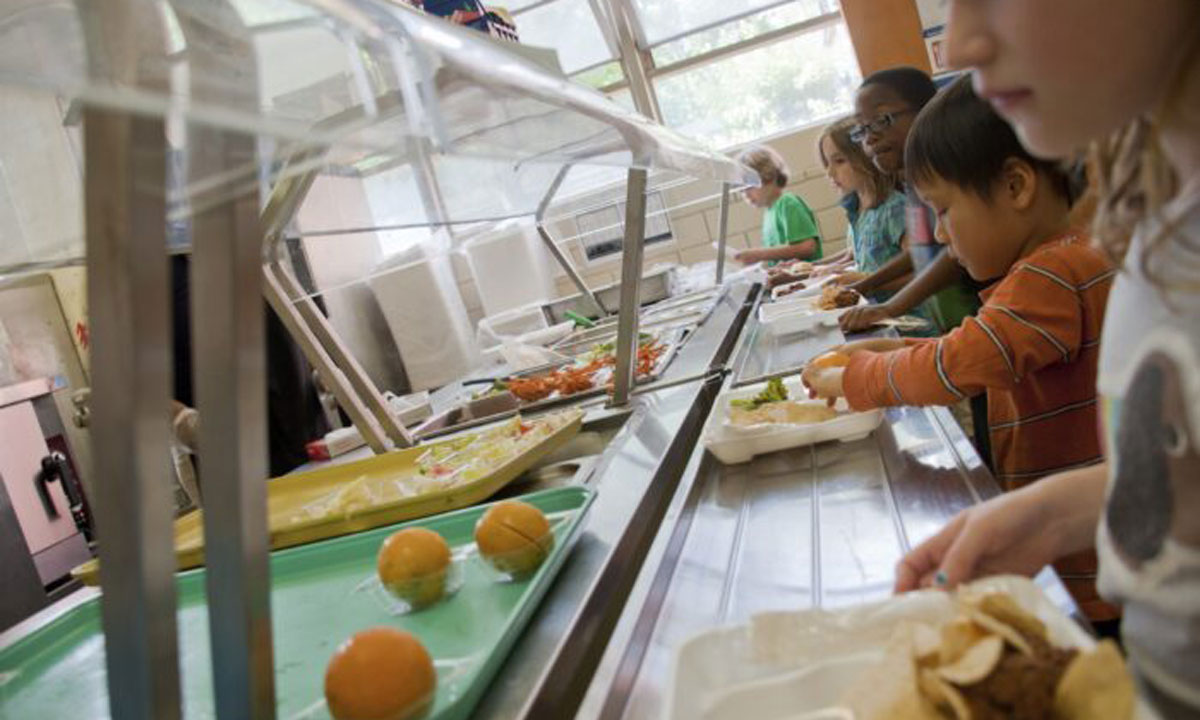To Improve Student Outcomes, Oklahoma Lawmakers Should Consider Tackling Hunger
Oklahoma is 1 of 5 states that has a food insecurity rate greater than 14.5%.

Get stories like these delivered straight to your inbox. Sign up for The 74 Newsletter
Two thumbs up to the groups that are working to erase over $76,000 in student lunch debt.
The two advocacy groups — Oklahoma Rural Schools Coalition and Oklahomans for Public Education — announced that they are partnering to launch a fundraiser to eliminate the debt generated by students who eat at their schools.
As Nuria Martinez-Keel reported the $76,000 covers overdue bills for just seven school districts. At $37,003, Stillwater Public Schools had the largest debt from last school year.
Martinez-Keel reported that lunch debt in Oklahoma is on the rise, following the end of a two-year program during the COVID-19 pandemic under which the federal government allowed all students to eat for free at school. Typically, the free food is only offered in low-income areas or to those living in poverty, she reported.
The federal program ended June 2022.
In August, the Marlow Public Schools Superintendent Corey Holland told The Oklahoman that the district had about a $20,000 unpaid student meal tab. He said it’s been difficult to get families used to paying for food and dealing with the bureaucratic hurdles of filling out applications.
He’d like to see “some form of the free meal program return.”
In El Reno, one school official said some students have stopped eating lunch because “they know their parents can’t afford it.”
According to Hunger Free Oklahoma, over 1 in 5 — or 208,110 — children aren’t getting the nutrition they need.
Oklahoma is also 1 of 5 states that has a food insecurity rate greater than 14.5%.
The group reports that food insecure children are “more likely to have lower reading and math scores, more significant behavior and social problems and low high school graduation rates.”
In other words, if Oklahoma children are hungry, they’re not learning.
In that context, the recent state report card results released by the state Department of Education aren’t particularly surprising.
Only 27% of students tested at grade level in math, reading and science. State Superintendent Ryan Walters said Oklahoma’s academic outcomes are stagnant and “simply unacceptable” given the record investments in public schools.
Schools provide a multitude of services.
Hunger is something that is largely out of local districts’ control, but it is definitely something that could be alleviated if lawmakers are willing to think outside the box.
Maybe it’s time to rethink how we feed our public school students.
We have billions in our state savings. Now might be a good time to pilot a universal free meal program to see if providing free food to every child, regardless of income, could help reshape our struggling student outcomes and chronic absenteeism.
Lawmakers like to complain that they’re investing historic amounts of money into public schools, but not seeing the expected return on their investment.
Maybe that’s because we’re simply throwing money at something without examining the root causes. We could have the best curriculum and teachers, but a child who goes to school hungry isn’t going to be focused on learning.
Schools are uniquely positioned to help tackle childhood hunger with the right legislative investment. After all, they touch the lives of over 700,000 children each day.
“Offering meals at no charge means that schools no longer have to collect unpaid meal fees from families or foot the bill for meals served when children do not have money to pay,” the The Food Research and Action Center reported. “Removing this dynamic between families and schools allows school nutrition staff to focus on preparing and serving healthy meals to children, and it eliminates a significant financial burden for school districts and families.”
Districts have a lot to worry about.
Maybe we shouldn’t be making them debt collectors too.
Students have a lot to worry about too.
Maybe we should make sure it’s not food.
Lawmakers want increased student outcomes.
Maybe we can all win here by trying something new, and focusing on a policy discussion that could have a far-reaching benefit and bolster the overall quality of life of hundreds of thousands of children and their families.
Oklahoma Voice is part of States Newsroom, a nonprofit news network supported by grants and a coalition of donors as a 501c(3) public charity. Oklahoma Voice maintains editorial independence. Contact Editor Janelle Stecklein for questions: info@oklahomavoice.com. Follow Oklahoma Voice on Facebook and Twitter.
Get stories like these delivered straight to your inbox. Sign up for The 74 Newsletter

;)